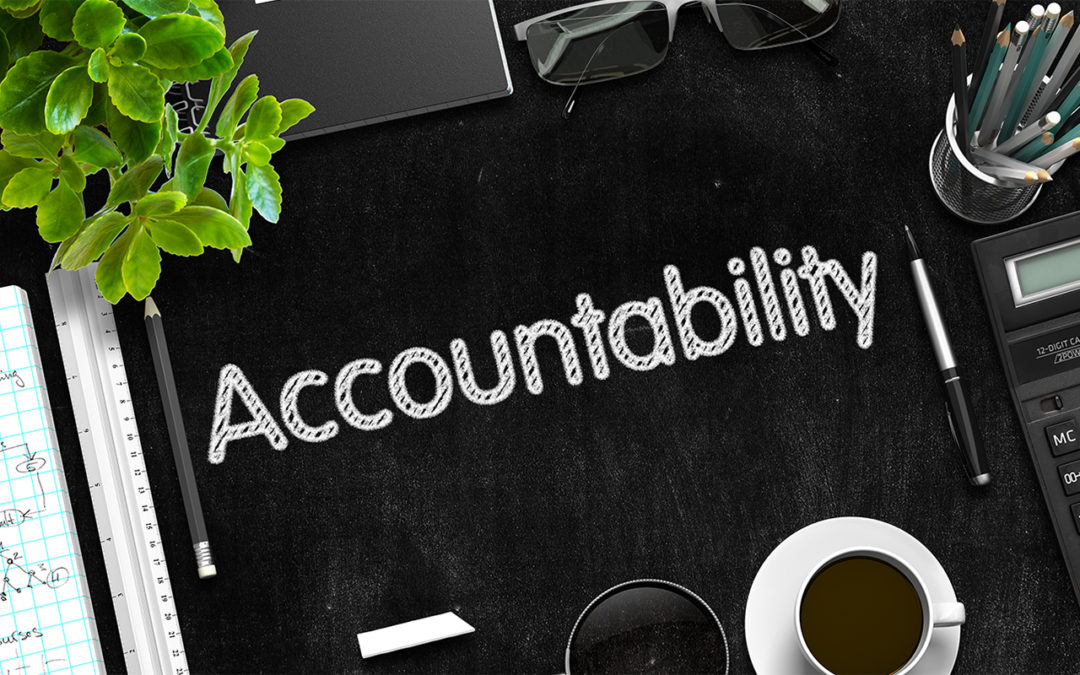
How Accountable Are You?
Accountability is huge for small business owners, entrepreneurs and freelancers that I speak to. It’s also a double edged sword. Many people muddle accountability with rules, loss of freedom, and obligation – for some the exact opposite of why they went into business for themselves.
In my view, clarity and accountability go hand in hand. If you are not clear about what you want to achieve, where you are going and how you are going to get there, it is very difficult to hold yourself – or anyone else, accountable for progress or lack thereof. Yet lack of clarity is one of the most common things I see in small business clients – and some not so small businesses, for that matter.
Without accountability you are free to go with the flow, to set your own direction to do stuff on your own terms – all things many business owners relish and state as reasons for going into business in the first place. You are also free to procrastinate, under deliver, miss deadlines, forget stuff, make excuses and a whole lot of other stuff that makes life as a business owner so much harder than it needs to be.
The thing is, when it’s your business, your livelihood – as well as that of your family & your employees, if you have them, you are it – ultimately the buck stops with you. That can be a heavy burden to bear alone – especially when you are wedded to a vision of freedom and pleasing yourself. It is no coincidence that one of the major selling points for mastermind groups and online forums is accountability – it genuinely can be hard to go it alone.
There are three parts to accountability and all are equally important –
- Mindset – This is probably the most talked about and the least practised. Most of us are very good at making excuses for ourselves when we are scared or don’t want to do something. This retrofit reality doesn’t serve you. If you find yourself making an excuse for your actions, inactions, procrastinations etc. stop and look at why. What is really going on: are you scared, do you lack knowledge, is something misaligned with your values? There will almost always be an emotional trigger and it’s only by understanding that trigger that you can decide whether to act differently or not. Holding yourself accountable for your mindset is not the same as giving the voice in your head free reign, in fact it’s the opposite. It is questioning the stories you are telling yourself, deciding whether they are helpful or holding you back. Just think, if you took the action you really wanted to take instead of making an excuse how much closer to your dreams would you be? And finally, learn to deal with not getting what you want – don’t waste time making excuses, blaming others and wallowing in self pity – you can only control how you respond to stuff not what actually happens to you.
- Clarity – If you are not absolutely clear about what you want it’s hard to set goals, involve others and follow up on outcomes. Clarity is the first pillar of a brave business; without it you are destined to wander around in the wilderness. Clarity allows you to involve others, whether it is to help you to be accountable or to work with you, or to buy from you. My number one rule for any new project is get clear – get clear about what we want to achieve and get clear about what we are prepared to do and not prepared to do to make that happen. This enables two things. First, we get clear about goals, targets and aspirations and measures of progress & success we can be held to account for. Second we can delegate. Successful delegation is a whole blog in itself – and something that comes up frequently for some of our larger clients as well. Here are the highlights:
- Be clear about the outcome you want?
- Be clear about what you are delegating – the task, responsibility for outcome, accountability for outcome?
- Ensure the person / people you are delegating to have the skills to undertake the thing you have asked of them.
- Be clear about how / when you are available for questions, feedback, sign off etc. depending on the degree to which you have delegated
- Tell people what you need but not how to do it – in other words delegate, don’t micro manage.
- Structure – This is really about skills and systems, and it’s easy to learn. How many times have you been derailed by something that appears to come from left field and needs all of your attention, or something that becomes more urgent than it is important because you have put it off for so long? Structure prevents this. Structure removes the chaos that imprisons you, kills your creativity – and reduces your potential for success. Structure creates the freedom and the ability to do things on your own terms that so many business owners crave. As a, mostly, reformed chaotic I’ve learned this the hard way! Here are a few simple structures that help you stay accountable without feeling constrained.
- Stay compliant – it’s hard to miss GDPR at the moment, and changes in legislation will demand your attention from time to time. Here I’m really talking about the regular stuff that happens in your business every year, every quarter, every month, things like tax returns, VAT, accounts, monthly obligations that may not be automated, stuff that needs to stay current like insurances and professional obligations like indemnity and CPD if it is relevant to your business. A dated reminder system will prevent the last minute derailing I so often hear of.
- Create realistic to do lists – maybe the top three things you need to do and stick to them
- Set reminders – give yourself headspace to concentrate on what you are doing without the risk of forgetting important things or even dwelling too long on one thing at the expense of other tasks.
- Set goals, measurable targets and deadlines for all crucial activities and projects – especially if it only involves you!
- Get comfortable asking for what you want – if you don’t know, no-one else can help you – even if you are paying them to! Asking for help is a bit like delegating, get clear first then ask others if they can help you achieve.
- Have accountability meetings – it would be fair to say this is easier with a leadership team / board, an ‘accountability buddy’, a mentor or coach or a mastermind group, but don’t ignore this if you prefer to work alone – meet with yourself! Set time aside to honestly review what’s working, what’s not and what needs to happen next. Then do the same for others involved in your team and people who you have delegated to.
If you don’t get accountable to yourself and to your business you risk drifting, getting stuck or being caught in a storm too often. Accountability is a habit like so much else in our lives, and creating, changing or consolidating any habit can feel like hard work at the beginning. Take each of the above steps in turn and look at where you may need to change your habits.
Remember – lack of accountability fuels your excuses, frustrations and lack of progress.

Recent Comments